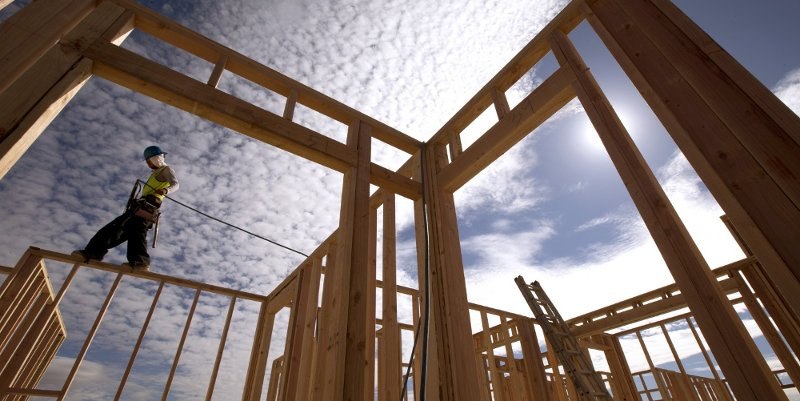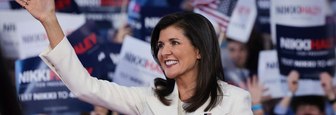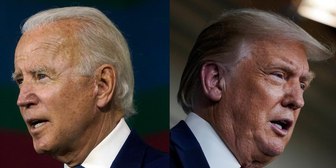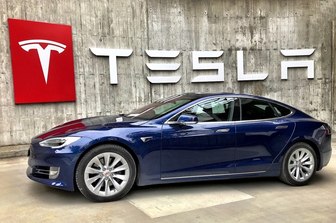Unemployment may be dropping, but people still don't think the economy has recovered from the 2008 financial crisis
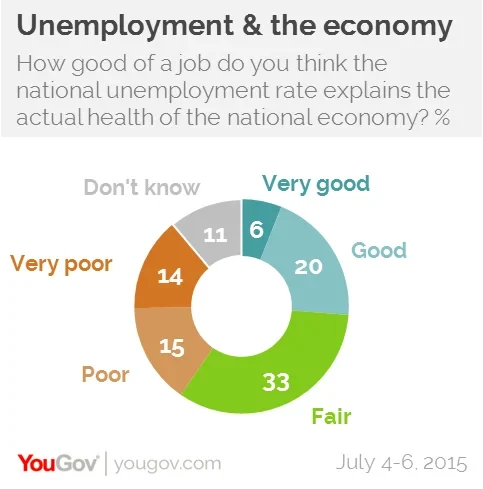
Despite the continuing drop in the country’s unemployment rate, now at its lowest level in seven years, Americans still have negative evaluations of the state of the U.S. economy. The latest Economist/YouGov Poll suggests a reason why: the jobless rate is not the only measure people use to judge how well things are going. And for many, the jobless rate isn’t even a good measure of economic health.
Only one in four thinks the unemployment rate does a good job explaining the health of the economy. Most disagree. Nearly two in three believe the jobless rate does only a fair or poor job assessing the health of the economy. While Democrats are more likely to credit the unemployment rate (one in three of them say it does a good job explaining the state of the economy), a majority, 56%, of Democrats say it is only a fair or even a poor measure.
It has taken a long time for Americans to accept that the unemployment rate has gone down. It reached 10% in October 2009, but started dropping soon after. This month’s 5.3% rate is nearly half what it was at its height. Even now, only one in three know that the rate is below 6%, and barely half say it is lower than it was when Barack Obama took office.
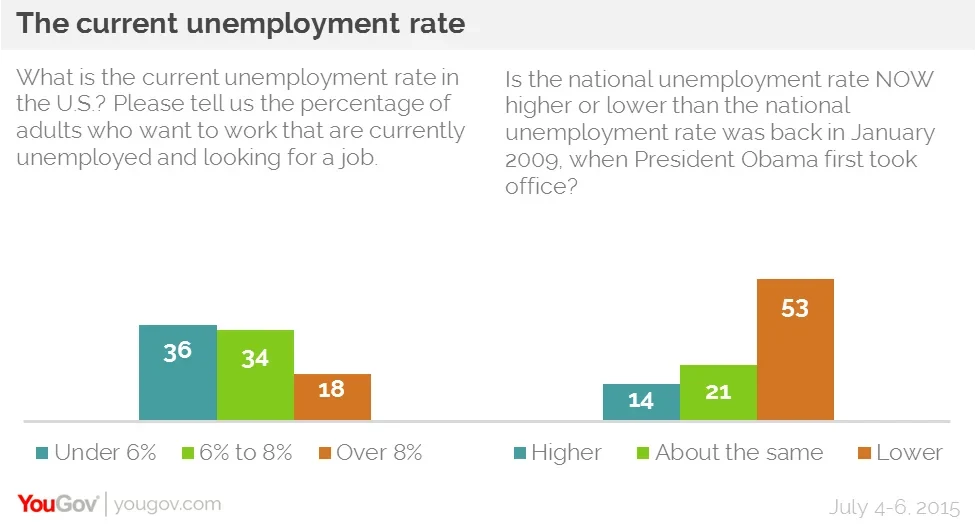
Some of those judgments may be political. Republicans are less likely than Democrats to think the jobless rate has dropped. They are also more likely than Democrats to think that unemployment is a very serious problem for the country, though not necessarily for their own communities. 47% of Republicans, nearly half, say joblessness is a very serious problem nationally. Less than a third of Democrats think this. There is no significant partisan difference when people are asked about joblessness in their own community.
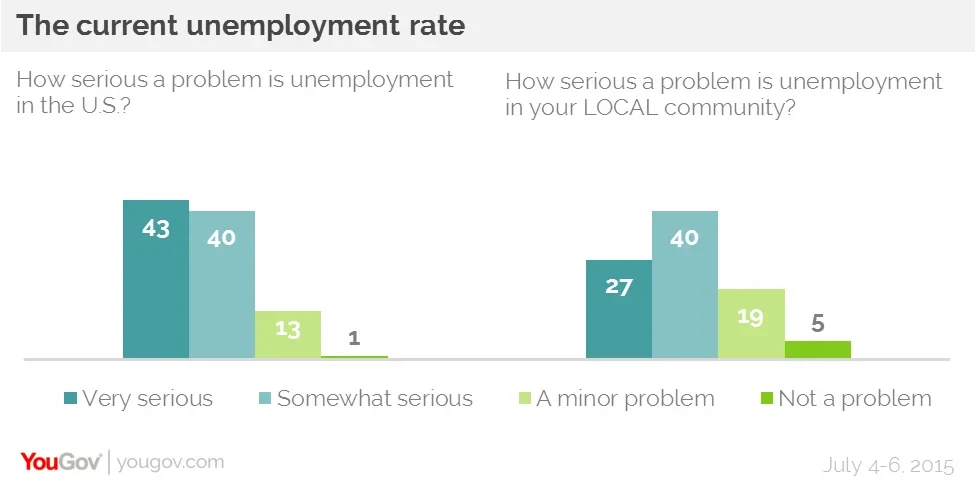
Overall assessments of the economy are often driven by political considerations. More Americans think the economy is getting worse this week than say it is getting better. Although nearly half of Democrats (45%) see an improving economy, more than half of Republicans (53%) see one that is getting worse. Partisan responses to these questions seem to depend as much on who is President as on the economy itself. During the Presidency of Republican George W. Bush, even before the Great Recession began, Democrats were more likely than Republicans to say the economy was getting worse.
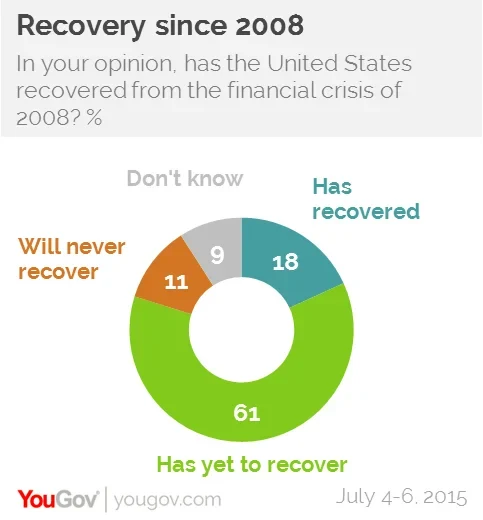
There is one area of general partisan agreement: the country still has a way to go to recover from that 2008 financial crisis. Majorities of both Republicans and Democrats say that hasn’t happened yet, and while most are optimistic that it will, seven years later only 18% believe that it has.
People use different scales to evaluate the economy. They are nearly as likely to view prices as the best measure of the nation’s economic health as to view jobs that way. Some equate their personal economic situation with how the country is doing. Democrats and Republicans differ on this, and so do men and women. People 45 and older cite jobs and prices equally; those under 45 say jobs matter more.
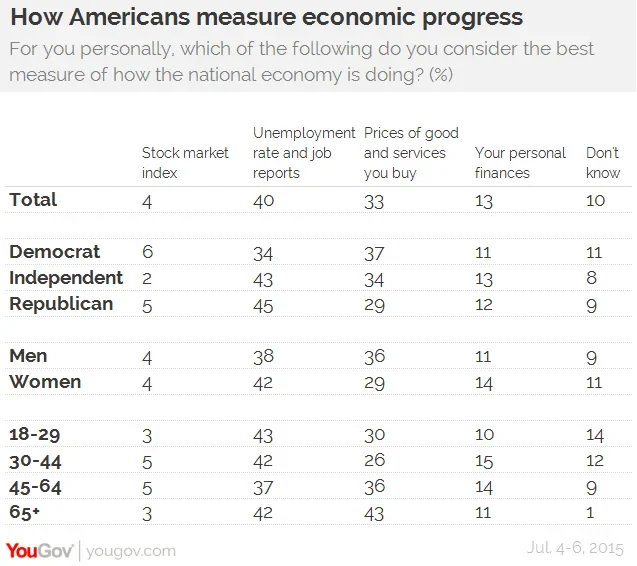
Hardly anyone says the stock market is the best indicator of economic health.
As for President Obama’s proposal to increase the number of workers eligible for overtime pay, with a rule raising the threshold for coverage to $50,000, two in three Americans have heard at least something about it. But the country is divided on whether or not it is a good idea. Since the poll question noted that this rule was proposed by the “federal government,” perhaps it is not surprising that the parties disagree when it comes to approval. Democrats approve, while Republicans do not.
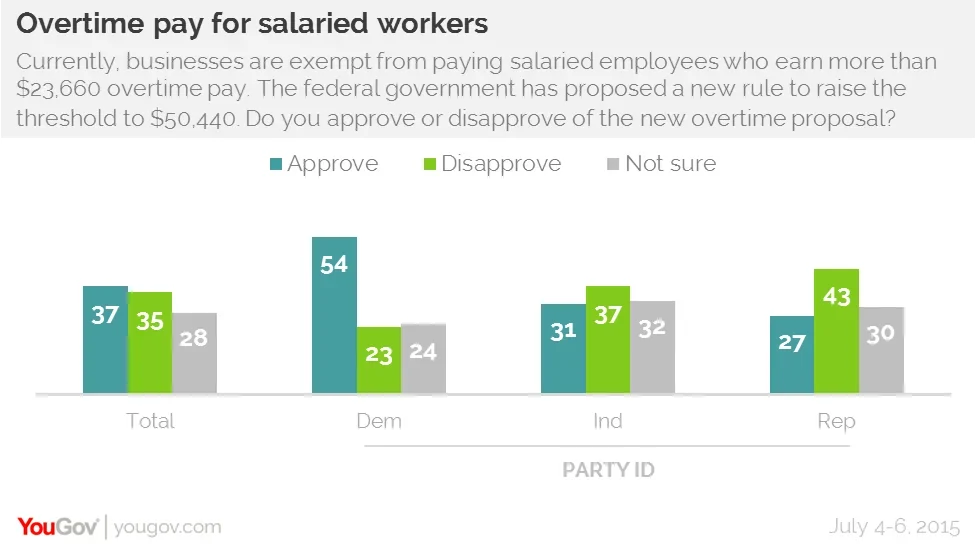
Economist/YouGov poll archives can be found here.
